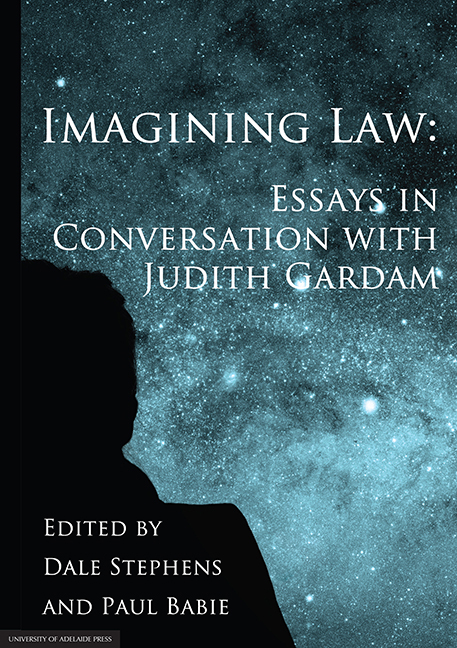Book contents
- Frontmatter
- Dedication
- Contents
- List of Contributors
- Acknowledgements
- 1 Introduction: Seeing Further over the Horizon – A World of Limitless Possibilities
- Part I
- Part II
- Part III
- Gender and Armed Conflict
- Gender and Feminist Concepts
- 10 Women's Role in Reconstituting the Post-Conflict State
- 11 Law under the Influence of Religion: The Limiting of Birth and Death Decisions
- Theoretical Issues
- A Selected Bibliography
- Table of Cases and Materials
- Selected Index
10 - Women's Role in Reconstituting the Post-Conflict State
from Gender and Feminist Concepts
Published online by Cambridge University Press: 05 August 2017
- Frontmatter
- Dedication
- Contents
- List of Contributors
- Acknowledgements
- 1 Introduction: Seeing Further over the Horizon – A World of Limitless Possibilities
- Part I
- Part II
- Part III
- Gender and Armed Conflict
- Gender and Feminist Concepts
- 10 Women's Role in Reconstituting the Post-Conflict State
- 11 Law under the Influence of Religion: The Limiting of Birth and Death Decisions
- Theoretical Issues
- A Selected Bibliography
- Table of Cases and Materials
- Selected Index
Summary
INTRODUCTION
The end of the Cold War in 1989 heralded in the drafting of a new wave of constitutions, particularly in post-conflict states, as many Cold-War-related conflicts came to a gradual end. Since this time, more than 110 constitutions have been written or revised — and one discernible global trend in this process of constitutional reform has been to entrench the right to equality between men and women as a constitutional principle. This widespread acceptance of gender equality as an international norm of constitutionalism is in large part due to pressure from the international community as well as the influence of international and regional human rights treaties generally. At the same time, constitution making has become increasingly participatory and inclusive and less understood as a process for elite groups. In this period, the United Nations (UN), mostly through the work of peacekeeping missions authorised by the UN Security Council, has assisted many post-conflict states such as Timor-Leste, Afghanistan and Nepal with the process of drafting their constitutions. This assistance has included support with public participation programmes and, in some more recent cases, encouraging women's inclusion in the constitution-making process.
The year 1989 also marks the beginning of Judith Gardam's pioneering work into feminist approaches to international humanitarian law, which has led to the UN Security Council's unfolding Women, Peace and Security (WPS) agenda. Along with peers such as Hilary Charlesworth and Christine Chinkin, with whom she ventured in 1989, Gardam is at the vanguard of feminist legal scholarship in international law: together, in the passing of a quarter of a century, they have led the way in highlighting, challenging and even shifting important paradigms facing women in conflict and post-conflict settings, many of which had previously seemed largely invisible and intractable.
There are a number of paradigms operating in the post-conflict context which have a significant effect on the lives of women. First and foremost is the cultural and social pressure to perform the ‘patriotic duty’ of reconstituting the state through childbearing. For example, five years after independence, in 2007, Timor-Leste had the highest fertility rate in the world.
- Type
- Chapter
- Information
- Imagining LawEssays in Conversation with Judith Gardam, pp. 219 - 242Publisher: The University of Adelaide PressPrint publication year: 2016



